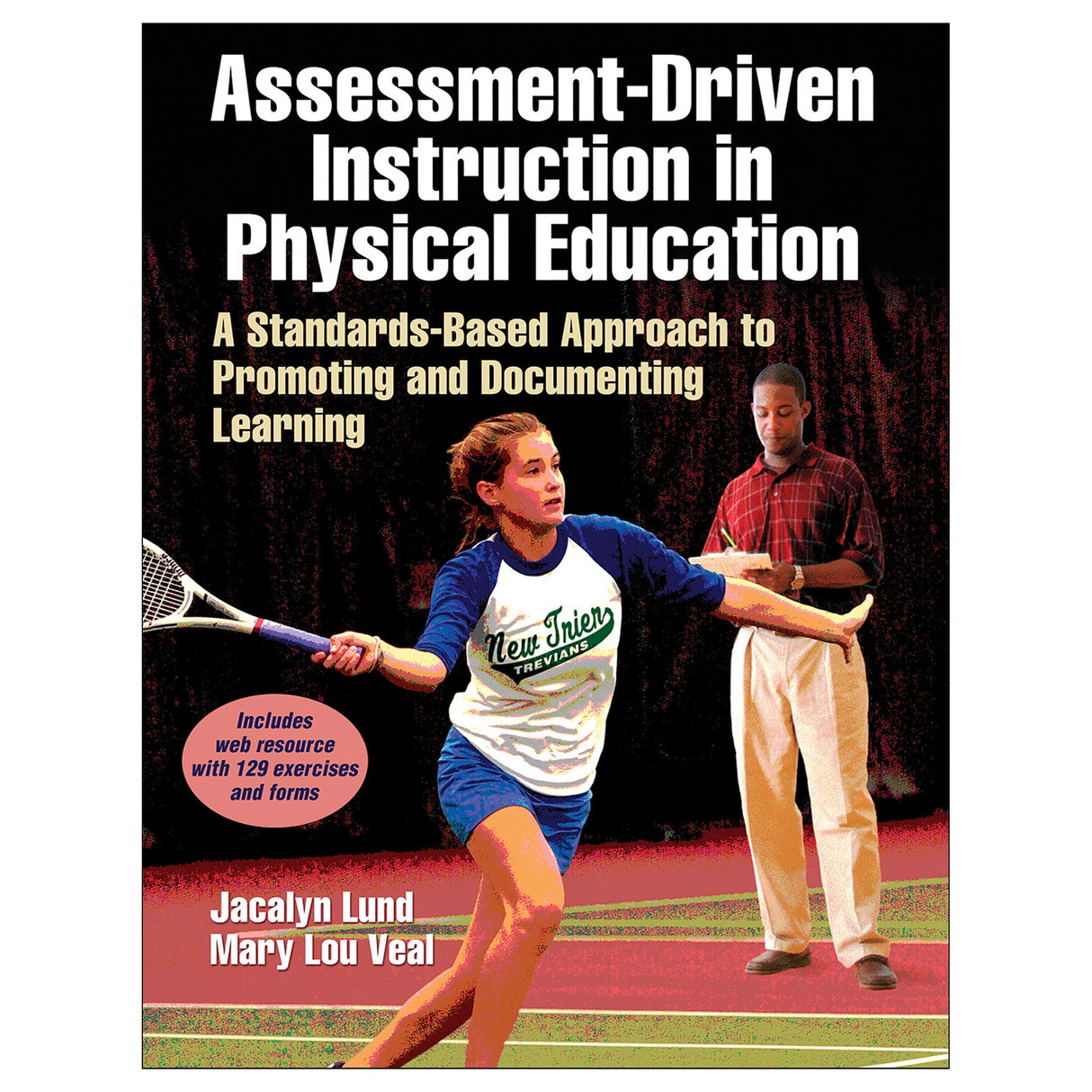Assessment-Driven Instruction in Physical Education With Web Resource
A Standards-Based Approach to Promoting and Documenting Learning
Author: Jacalyn Lea Lund, Mary Lou Veal
$49.00 USD
For the savvy educator, assessment can be a powerful tool for informing teaching decisions, improving student learning, and helping students achieve learning standards. Learn how to make the most of assessment with Assessment-Driven Instruction in Physical Education. With this text and web resource, you’ll learn how to develop assessments and gather information that helps you monitor student progress, structure effective lessons, and make grading more accurate and systematic.
Assessment-Driven Instruction in Physical Education: A Standards-Based Approach to Promoting and Documenting Learning shows you how to use standards-based assessment to advance and support student learning in middle and high school physical education programs. In this text, authors Lund and Veal, both experienced physical education teachers and teacher educators, help readers not only understand assessment concepts and applications but also develop the skills to implement assessment.
Assessment-Driven Instruction in Physical Education can be used in a methods class, in an assessment class, or for in-service teacher education. It contains numerous examples of assessments and unique practice tasks that help teachers develop assessment skills. Current and future teachers can use these practice tasks to apply their knowledge to specific teaching situations and design their own assessments as they move through the text. Readers will also gain knowledge and strategies for assessing the psychomotor, cognitive, and affective domains based on current assessment research aligned with National Association for Sport and Physical Education (NASPE) standards.
To help those new to the assessment process, this text includes chapters on managing assessment, using data to improve learning, and using assessments to assign a fair grade—information not found in most texts on assessment and measurement. An accompanying web resource contains assessment-building practice tasks in a convenient downloadable format, offering an accessible and efficient way to develop knowledge and skills in assessment.
With Assessment-Driven Instruction in Physical Education, teacher candidates and current educators can solidify their knowledge of assessment concepts as they learn to design and use high-quality assessments. Assessment-Driven Instruction in Physical Education can help teachers make assessment a meaningful tool for informing instuctional choices, promoting student learning, and documenting learning.
Audience
Reference for college and university instructors teaching courses covering methods and assessment in physical education teacher preparation (PETE) programs. Resource for physical education teachers.
Part I. Planning for Assessment
Chapter 1. An Introduction to Assessment
Chapter 2. Planning the Big Picture for Student Learning
Chapter 3. Focusing the Content of a Unit
Chapter 4. Writing Rubrics
Part II. Fine-Tuning Your Assessments
Chapter 5. Using Assessments Strategically
Chapter 6. Choosing Meaningful and Purposeful Assessments
Chapter 7. Writing Learning Outcomes
Chapter 8. Choosing and Designing Psychomotor Assessment Tools
Chapter 9. Creating Assessments for the Cognitive Domain
Chapter 10. Creating Assessments for the Affective Domain
Part III. Developing Assessment Skills
Chapter 11. Using Assessment Data
Chapter 12. Managing Assessment
Chapter 13. Using Assessment Data to Assign a Fair Grade
Chapter 14. Developing Your Plan to Become an Assessor
Improve student learning with goal setting
Learn qualities of a meaningful assessment
Setting the criteria for student learning
Student Web Resource. Includes applied exercises, sample forms, and rubrics shown in the book.
- All Your Turn exercises are presented in Word format so students may easily complete them online.
- Sample forms and rubrics that demonstrate key features of meaningful assessments may be downloaded and customized.





